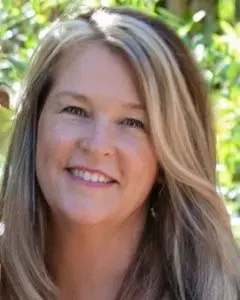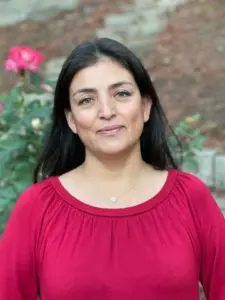
 By Lorraine Wilson, Program Coordinator at Marin Health & Human Services, and Dámaris Caro, Counselor at Behavioral Health & Recovery Services, County of Marin
By Lorraine Wilson, Program Coordinator at Marin Health & Human Services, and Dámaris Caro, Counselor at Behavioral Health & Recovery Services, County of Marin
Help@Hand, a pilot project of the Marin County Behavioral Health and Recovery Services Division, is actively engaging isolated older adults in accessing technology, developing and building digital literacy skills, and studying the impact of using digital wellness interventions. Through this project, over 40 residents have been engaged with Help@Hand and 10 Marin older adults who have never had Wi-Fi or a device are now connected, have participated in group training and individual coaching to use devices, and are now exploring a digital wellness self-management tool, myStrength™. The digital self-management tool myStrength™ offers support for daily living including activities and education to improve sleep and nutrition, to support mindfulness and health and to manage other challenges many of us face from time to time, such as anxiety and depression.
The project has partnered with the Division of Aging & Adult Services Telehealth Equity Project, allowing participants to receive in person and/or remote support from nurse interns from the University of San Francisco and Dominican University. Interns support digital engagement and also focus on making referrals for other services that support overall health. Project staff members have engaged Promotores to provide coaching support to some Spanish-speaking participants, which has provided culturally responsive engagement with a more flexible schedule.
The Help@Hand Project is currently conducting a pilot, testing myStrength™ with 15 English-speaking older adults in West Marin and 15 Spanish speakers from throughout Marin County. The University of California at Irvine is conducting a project evaluation to understand the impact of the project and the use of wellness technology, including questions such as:
- What changes do older adults report in their sense of health and well-being due to participation?
- How much time and effort does it take to get people “up to speed” with digital literacy?
- To what extent are products culturally relevant/appropriate?
This fall, the Help@Hand staff team will design a second pilot involving a different technology called Uniper Care that provides a range of services directly through a television remote. Features of Uniper include live social activities, a resource library of activities designed for older adults, telehealth access and “WhatsApp”, a service allowing video conferencing with family and friends without having to access this technology through a smart phone or computer. The only digital literacy requirement for this product is to be able to use your television remote. Uniper provides the opportunity to participate in group activities designed by Uniper, as well as to host customized local programs and activities to connect older adults with each other from their homes.
Research for both pilots will be used to select one of the two technologies, Uniper or myStrength™, for roll out to the broader community of isolated older adults in Marin next year.
The Help@Hand Project is part of a multi-county innovation project designed to determine if and how technology fits within the behavioral health system of care and is funded by the Mental Health Services Act. Digital behavioral health is a rapidly emerging field, with a robust body of evidence showing that digital self-care technology has the potential to positively impact health and wellness, as well as address issues of loneliness, depression and anxiety.
The Help@Hand Project in Marin was developed based on a nine-month community planning process involving community members, providers and other stakeholders. Based on this feedback, Marin County designed Help@Hand to focus on identifying an appropriate wellness service and training curricula focused on meeting the needs of isolated older adults. Help@Hand was previously known as the Innovations Technology Suite.
For more information contact Lorraine Wilson, Help@Hand project coordinator at lowilson@marincounty.org or Dmaris Caro, peer lead at Dcaro@marincounty.org.


